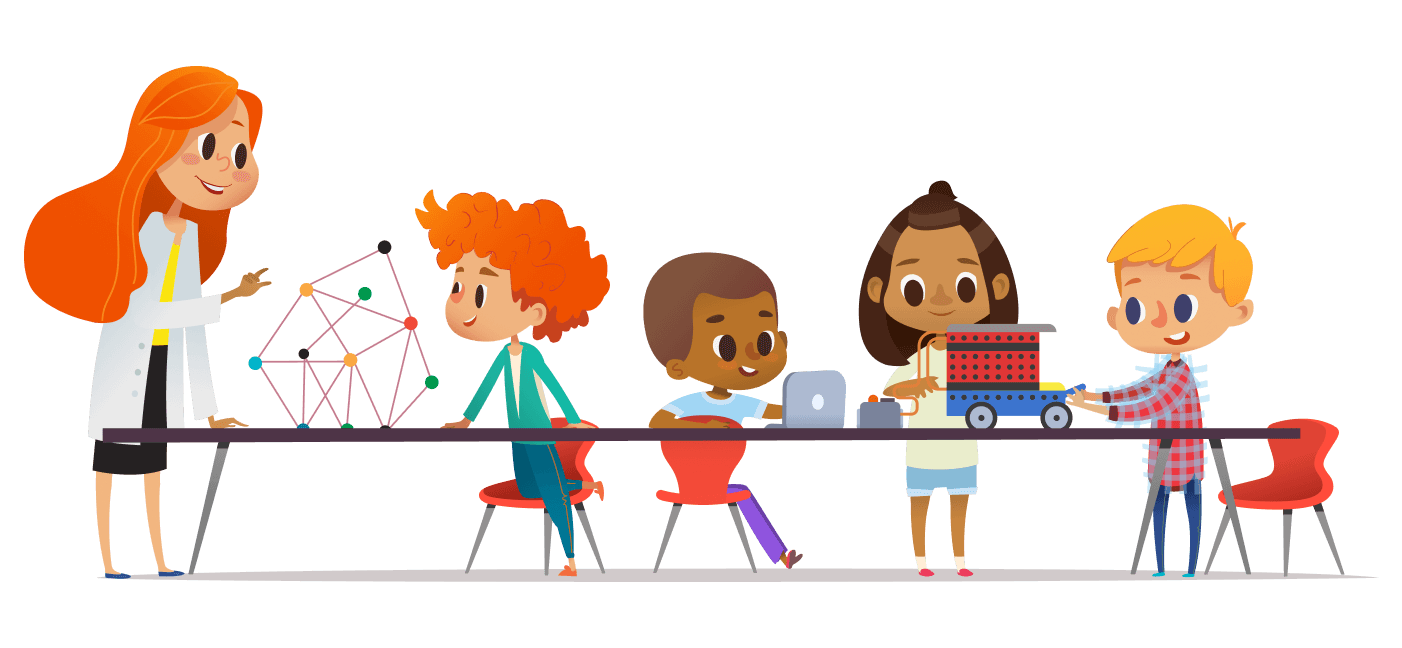
At LoonyLearn we believe each child deserves a chance to succeed. As a school district, you share our same vision. School districts supply resources to support teachers and students, and we are here to help. You can count on LoonyLearn to promote success in your school district.
LoonyLearn believes teachers are crucial to student success. Teachers create relationships with students that help them prosper. LoonyLearn is not meant to replace classroom learning, but rather enhance it. We are a resource for teachers who are being expected to do more and more for their students. Teachers present the information to their students. LoonyLearn provides the practice.
One of the struggles teachers face is the time required to plan lessons and find resources. While there are many resources available for teachers, it is time-consuming to find the ones suited to their students. With LoonyLearn, teachers can be confident that each game is mapped to the Common Core State Standards. Teachers simply select the targeted CCSS then click “assign”. No more spending hours searching the internet for reliable resources!
Part of the difficulty in finding resources is that teachers must meet the needs of diverse learners. LoonyLearn helps teachers differentiate. While one group of students play on LoonyLearn, teachers can work with another group. This allows teachers more time to with small groups of students who may need more support. While some students practice on LoonyLearn, teachers reinforce concepts with small groups.
To further differentiate with LoonyLearn, teachers can assign topics to an entire class or one or more students. Teachers select a topic, game difficulty, and due date, then let students play. Teachers can assign different topics and difficulty levels for students based on their needs. With LoonyLearn, teachers can meet students where they are at.
Our teacher dashboard aids teachers in identifying student needs. Teachers see an overview of the class’s performance as well as individual student results. All data is color-coded to show students’ progress towards proficiency, making it easy for teachers to track data. Using this information teachers assign games based on a student’s proficiency level.
LoonyLearn makes it simple for teachers to differentiate. With the support of our educational games, teachers will better meet the needs of a diverse group of learners. Your teachers will thank you for the support you have given them with LoonyLearn.

School districts have the challenging task of providing quality, coherent education for students. These students come to you with a variety of abilities and backgrounds. How do you ensure consistency in their education despite these differences? LoonyLearn is here to help you supply a more uniform learning experience for your diverse district.
We want your students to succeed, so we developed games that meet the needs of a variety of learners. For each concept, there are games at easy, regular, and hard difficulty levels. We base each level on Bloom's Taxonomy. At easy levels, students identify the correct answer, and at higher levels, they recall and analyze the correct answers. Whether students need a challenge or more guidance, we have games designed for them.
Our educational games are created to reinforce content through repetition. As students progress through games, they repeat the same concepts. When an error occurs, the problem is flagged and reappears until the student solves it correctly. The more students play, the more they see the problems, and the better they learn.
Each game we offer requires skills other than the targeted Common Core Standard. These skills include spatial awareness, timing, and planning ahead. According to Flow Theory, students are more interested in a game if it is challenging, but not impossible. If a game is too difficult, students give up. If a game is not complex enough, students lose interest. We design our games to be intricate enough to keep students immersed in their learning.
At a time when schools look to incorporate technology in the classroom, LoonyLearn was created. LoonyLearn helps promote digital literacy in schools. When students log on to LoonyLearn they learn to use technology in a safe environment. Students not only learn math and spelling, but also how to navigate a home page, choose games, and read their dashboard. With LoonyLearn, students will learn digital literacy along with math and spelling. Students use the keyboard to play educational games and use the mouse to navigate the website. We provide a safe space for students to explore a website with educational content.
Rest assured that your students will be secure online. LoonyLearn’s terms of use and privacy policy are adapted for elementary school children. Teachers assign their students’ login information. We do not collect student personal information or sell data to other companies. This ensures your students’ privacy and online security.
Now you know how LoonyLearn is beneficial for students and teachers, but how can it be used at a district level?
Our educational games automatically track and send data to teachers. On the teacher dashboard, data is available as a whole class or a single student view. On the class summary page, teachers see an overview of the class’s performance. Teachers see how much time students spent on a game, what they missed, and how many times they played. This also includes the percentage of students who have completed the assignment and if the class is meeting proficiency.
All data that is collected on LoonyLearn is also available as a spreadsheet offline. From the teacher dashboard, data can be exported to a Microsoft Excel document. We want you to have access to your data even when you do not have access to LoonyLearn. This allows teachers to easily collaborate and compare data.
During collaboration, teachers can compare the proficiency levels of students in different classes. By looking at the data teachers see trends in student progress towards learning standards. Based on the data, teachers can make decisions about further instruction.
At a district level, data from each class can then be used to analyze the strengths and weaknesses of students across the district. This data provides information on student abilities and teacher performance. By examining the reports, districts can enact changes in instruction techniques and curriculum.
Research shows that when children learn better when they connect learning at school to their lives at home. If a child only practices what they are learning at school, they are less likely to remember the material. Students need additional practice outside of school but are not motivated to do worksheets at home. Parents are tired and do not have the energy to help their children with worksheets. But, what if the homework was a game?
By gamifying school content, LoonyLearn has made it more desirable to students. Parents will notice a change in their child’s attitude towards learning. Children will be more willing to practice math and spelling at home because it is fun! This change in attitude will draw the attention of parents. When children are happy, parents are happy.


